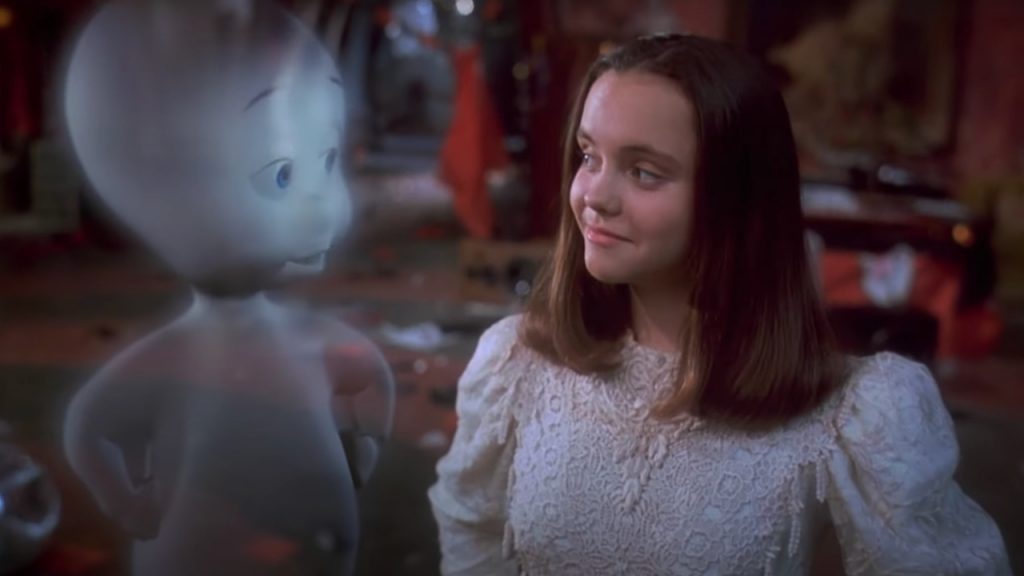Ghosting, and some gaslighting in between. It’s August, ghost month. So let’s talk about ghosts!
If you have not been kept abreast with the latest developments in society, there’s this phenomenon in the dating scene called ghosting. To describe it simply, it’s when one person disappears all of a sudden from a dating relationship, and becomes a “ghost” to the other person. That’s ghosting. It’s as easy as that… or so, you all think?
Well, easy can get boring. So I’m here to complicate things to make ghosting way more interesting to you.
I’ll start off with something everyone can think about: Casper was a ghost. Nonetheless, he was a friendly protagonist in his time. Despite Casper’s rather ghostly nature, he still got entangled in an otherwise complicated relationship with his love interest, Kat. Kat saw a ghost from the start and yet she did not see Casper as a bad person…. or a ghost, for that matter.

Based on how I defined ghosting earlier, it doesn’t seem to be difficult to determine who the supposed villain is, so to speak, in a ghosting situation. I think you would agree.
How was that concluded, though? I bet you got too caught up typecasting the “ghoster” as the villain, and the “ghosted” as the poor innocent victim. I assume this was how you were made to think. Probably you are, in fact, kept well abreast with the novel societal phenomenon that is ghosting, as it has simply been understood.
Who do we, however, really blame for ghosting? Do we not want to stop and think first about how the ghoster might have felt about being accused as the villain, and the potentially valid reasons he or she might have had for the “ghostly deeds”?
Blame is hastily thrown at the ghoster as if all is to blame them. Yet, what could have been going on in the mind of this person? What could have led him or her to ghost, which at this point, is already a social crime? Nobody naturally wants to walk right into their demise. Was the risk of being painted with shame by everyone for ghosting worth taking?
Mind you all, there are two specimens to examine in this whole ghosting scenario. This is for us to come up with a well-rounded assessment of who really is at fault.
It can be said that the ghoster may have already gone through a massive self-examination process. With this, they are also often put in a bad light by a lot of those who are very quick to cancel. That being the case, let’s direct our lens to the ghosted this time.
A few questions can come up:
- Did the ghosted give his or her all to the ghoster, or at least that which was sufficient to them?
- Did the ghosted do something rather unpleasant that was a total dealbreaker, preventing a meaningful and long-lasting relationship?
- Did the ghosted know what the ghoster wanted out of the potential relationship, or was the ghosted too stubborn to hear the ghoster out?
Likely the ghosted was too stubborn this way because they knew they could be compensated for their perceived injuries—if any—from the social crime of ghosting. The ghosted knows the social consequences that ghosting has on the ghoster. Consequences that are within the realm of cancel culture, that is.
These are just a few among various other things that people in the dating scene forget. In the process, the ghoster—the villain, the bad person—is labeled and canceled for ghosting. All of this was at the expense of completely disregarding how and what the ghoster was truly feeling at the time. As we all know, feelings are valid, real, and not ghostly.
Labeling the ghoster then becomes some sort of a variant of cancel culture. Everyone then becomes automatically hard-wired to cancel someone and have them walk the pavement of shame in a unified retaliatory response to ghosting, an oh-so wretched act.

Why, however, do we only consider how the ghosted feels about it all? This makes the reasons and feelings of the ghoster practically also ghostly. As we can see, it is not only the ghoster who becomes a ghost. In the running to become ghosts are also his or her invalidated feelings, emotions, and rational state of mind. These are all warped into the realm of ghost-land.
Lest everyone forget, dating is a two-way street. Let’s call a spade a spade; relationships are essentially a quid pro quo, but a unique one at that with human emotions involved.
The ghoster may not have been very skilled in communicating their thoughts. The ghoster may have not been getting what he or she wanted out of the relationship. Perhaps, the ghoster just did not prefer to linger any longer. This is a matter of personal preference. Ultimately, the ghosted is not necessarily an unlikeable person. It’s relative, not absolute. We, I included even, sometimes fail to stay aware of this.
Damned if the ghoster does: Is it even safe to say that all who are ghosted enjoy listening to what the ghoster has to rant on about why he or she decides not to date anymore? That would involve a lot of negative adjectives, don’t you think?
Damned if the ghoster does not: On the contrary, is it safer to say that all who are ghosted would thrive listening to all the negative things the ghoster has to say about them? What happened to “If you don’t have anything nice to say, don’t say it,”?
Let’s allow ourselves to view the situation with a more open mind. Let’s acknowledge that are other ways to view and assess ghosting. Let’s not limit ourselves to the image of how ghosting is pictured by everyone else who is so quick to adopt cancel culture as if it is the law of the land.
What then is our takeaway from this? Kindness. Deflate our ego. Be the bigger human being, ghoster or ghosted.

This may be a hard pill to swallow. I may also even be likewise canceled for any gaslighting that I expect to be unreasonably accused of. Hear me out, nevertheless.
To the ghosted: Accept that you are ghosted. Accept that it may have been partly your fault. Stop the cancel culture vengeance because that may only make you less dateable, and that’s on you. Not everyone is for everyone. Think of it as redirection, not outright rejection. You are an amazing person, still. Remember that.
To the ghosters: You may notice I have been trying to defend your honor as you read through this article. Nevertheless, do your (defended) honor a favor and give your to-be ex-dating partner the bare minimum by telling them your intentions of not wanting to date anymore. They deserve to be told. If that is too hard for you to do at the moment, prepare yourself next time if you are planning to date someone new.
It might be impossible, however, to set the stage to perfectly pan out the way I described it. Again, this is because there are human emotions involved. It will always be relative and nuanced to the dynamic between specific dating individuals.
Despite that, the platform for that stage may still be preliminarily set to produce the most ideal outcome—or at least something that is close to it—to both the ghoster and ghosted. Especially during such a time when the sun is already seeming to set, for good, in what will be their past dating relationship.
Why don’t we then keep our minds open and think about it more, moving forward? Sounds like a good idea, yeah? Let’s all also flourish in all ways that we can in the ghost month while we’re at it.






